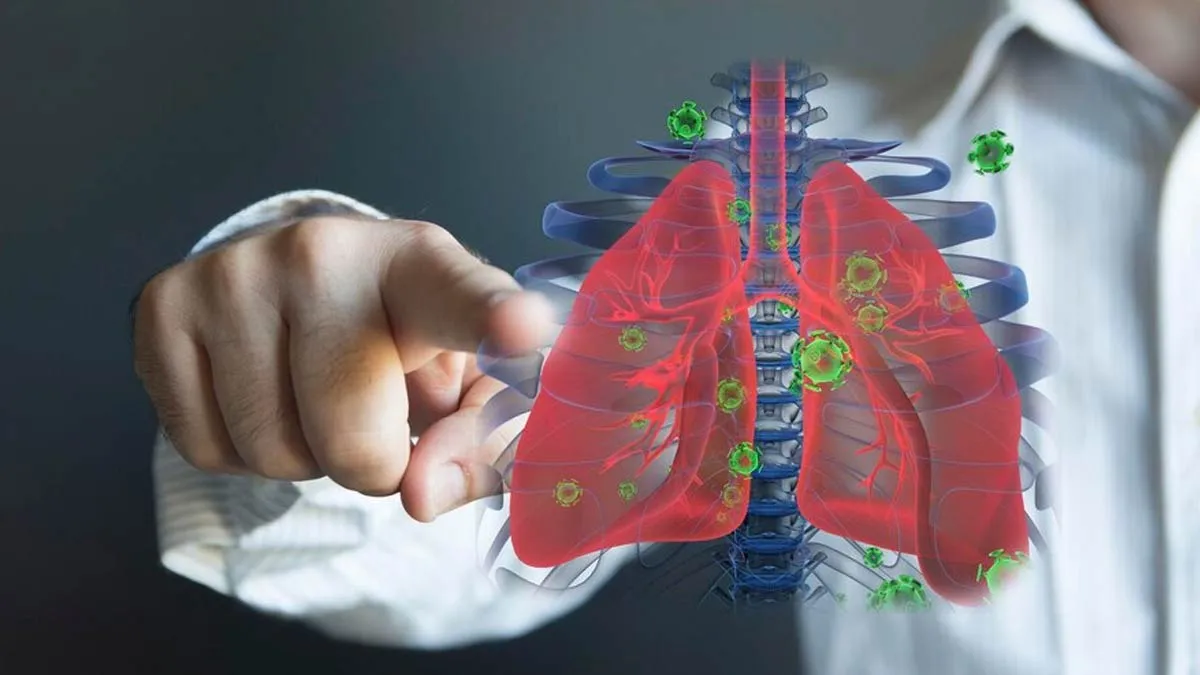
Cancer is the leading cause of death worldwide, a devastating disease that leads to painful complications. While treatments offer hope and can be life-saving, they often come with their own set of side effects, adding to the burden faced by patients and their families.
Table of Content:-
Beyond the physical pain, fatigue, and the challenges associated with daily activities, cancer patients also grapple with the constant fear of metastasis. Metastatic cancer is when the cancer in one part of the body spreads to other parts of the body, which further complicates the patient's situation. While metastatic cancer can affect any organ, the lungs are a particularly common site for such spread.
Also Read: Did You Know Smoking Can Cause 12 Different Cancers? Here's What They Are
Why Cancer Often Spreads To The Lungs?

According to StatPearls Publishing, the lung is the second most common site for cancer metastasis, with an estimated prevalence of 20-54% of malignant tumours. As per WebMD, metastatic lung cancer, or secondary lung cancer, is present in about a third of the people who die from cancer.
In an interaction with the OnlyMyHealth team, Dr L. M. Darlong, Head of Thoracic Oncosurgery, Rajiv Gandhi Cancer Institute and Research Centre (RGCIRC), Delhi, says that cancer cells often spread to the lungs because blood from most of the body, including the heart, flows through the lungs.
Research reveals common routes of how cancer spreads to the lungs. This includes haematogenous spread (bloodstream), which is common for cancers like those of the head and neck, thyroid, adrenals, kidneys, testicles, melanoma, and bone.
It can also spread through the lymphatic system, either moving forward from nearby areas or backward from lymph nodes, and this is typical for stomach, breast, pancreas, uterus, rectum, and prostate cancers.
Sometimes, cancer spreads directly to the lung lining (pleura) through the blood, lymph system, or from liver metastases, often occurring with breast, pancreas, and stomach cancers.
Signs Cancer Has Spread To The Lungs

While lung metastasis can be asymptomatic, some of the key symptoms include:
- Cough that doesn't go away or is accompanied by blood
- Shortness of breath
- Chest pain
- Weight loss
- Fatigue
- Fluid buildup around the lungs
- Decreased appetite
- Hoarse voice
- Difficulty swallowing
- Finger clubbing or changes in the shape of fingers and nails
- Swelling of the face
Also Read: How Accurate Is Liquid Biopsy In Diagnosing Lung Cancer?
How To Diagnose And Treat Lung Metastasis

Lung metastasis can be diagnosed by seeing them through a Computed Tomography (CT) scan, says Dr Darlong. A CT scan is a medical imaging procedure that uses X-rays to create detailed pictures of the inside of the body.
Other imaging tests like chest X-rays and PET scans, along with a physical examination and medical history review, can help detect lung cancer. To confirm the diagnosis, one may need a biopsy too, which involves taking a tissue sample from the lungs.
Lung metastasis treatment often involves a combination of approaches, including chemotherapy, immunotherapy, and targeted therapies. In addition, lifestyle changes, such as quitting smoking and maintaining a healthy diet, can play a significant role in preventing lung cancer and improving overall health outcomes.
According to Dr Darlong, early detection plays a very crucial role, ensuring timely treatment for patients and improving survival rates.
Conclusion
While cancer cells can spread to any part of the body, lungs are often a common target. This is because blood from most of the body flows through the lungs, making it more prone to metastasis. Although an advanced cancer can be life-threatening, early detection can improve chances of survival. Hence, watching out for any persistent symptoms is key, and going for regular screenings is crucial.
Also watch this video
How we keep this article up to date:
We work with experts and keep a close eye on the latest in health and wellness. Whenever there is a new research or helpful information, we update our articles with accurate and useful advice.
Current Version